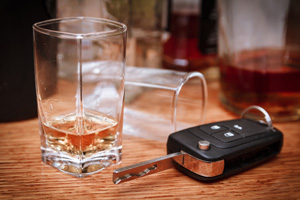 While the legal limit of 0.08% BAC in Texas establishes a presumption of intoxication, it is not the sole criterion for DWI charges. Impairment can be established through other evidence, such as field sobriety tests and subjective observations by law enforcement officers. Additionally, Texas has a zero-tolerance policy for drivers under 21 years of age, where any measurable amount of alcohol in their system can lead to a DWI charge.
While the legal limit of 0.08% BAC in Texas establishes a presumption of intoxication, it is not the sole criterion for DWI charges. Impairment can be established through other evidence, such as field sobriety tests and subjective observations by law enforcement officers. Additionally, Texas has a zero-tolerance policy for drivers under 21 years of age, where any measurable amount of alcohol in their system can lead to a DWI charge.
Don’t let misconceptions about the legal limit undermine your defense. Sophia Martinez Law, led by Former Assistant District Attorney Sophia Martinez, is your trusted partner in navigating the complexities of DWI cases. With her extensive experience in both prosecution and defense, Former Assistant District Attorney Sophia Martinez understands the intricacies of the legal system and can provide you with the comprehensive representation you need. Contact Sophia Martinez Law today to ensure your rights are protected and receive the expert guidance necessary to achieve the best possible outcome for your case.
Can You Get a DWI With a BAC Under the Legal Limit in Texas?
Driving while intoxicated (DWI) is a serious offense with severe legal consequences and significant risks to public safety. In Texas, like in many other jurisdictions, the legal limit for blood alcohol concentration (BAC) is set at 0.08%. There’s a misconception that one cannot be charged with a DWI if their BAC is below this limit. However, it is possible to be charged with DWI even if a person has BAC lower than the legal limit.
The Legal Limit and Presumptions
In Texas, a BAC of 0.08% or higher is considered per se intoxication, meaning it automatically establishes the presumption that a person is intoxicated. However, it is important to note that this legal limit is not the sole determining factor for DWI charges. The law allows the prosecution to establish impairment through other evidence, even if the BAC is below 0.08%.
Standard of Impairment
Under Texas law, a person can be charged with DWI if they are impaired by alcohol or drugs to the extent that they do not have normal use of mental or physical faculties. This standard of impairment allows law enforcement officers and prosecutors to pursue charges based on subjective observations and field sobriety tests, irrespective of BAC results.
Field Sobriety Tests
When determining impairment, law enforcement officers often employ field sobriety tests to assess a driver’s physical and cognitive abilities. These tests, such as the walk-and-turn or one-leg stand, are designed to detect signs of impairment. The results of these tests can be used as evidence to support a DWI charge, even if the driver’s BAC is below the legal limit.
Zero Tolerance for Minors
It is worth noting that Texas has a zero-tolerance policy for drivers under the age of 21. For individuals under the legal drinking age, any detectable amount of alcohol in their system while operating a motor vehicle can result in a DWI charge.
Enhancements and Prior Convictions
In some cases, having a prior DWI conviction or other aggravating factors can result in enhanced penalties,
Charged With a DWI? Contact Experienced DWI Defense Lawyer Sophia C Martinez Today
In Texas, getting a DWI charge is not solely dependent on your blood alcohol concentration (BAC) being above the legal limit of 0.08%. Impairment can be established through other evidence, such as field sobriety tests and subjective observations by law enforcement officers. Therefore, if you find yourself facing a DWI charge, regardless of your BAC being below the legal limit, it is crucial to seek professional legal assistance to protect your rights and mount a strong defense.
Former Assistant District Attorney Sophia Martinez of Sophia Martinez Law understands the complexities of DWI cases and dedicates herself to providing comprehensive and effective legal representation. With her unique perspective from both prosecution and defense, Sophia Martinez possesses the knowledge and experience necessary to navigate the intricacies of the legal system. Contact Sophia Martinez Law today by calling (210) 226-3000 or completing this contact form.
Se habla español.
